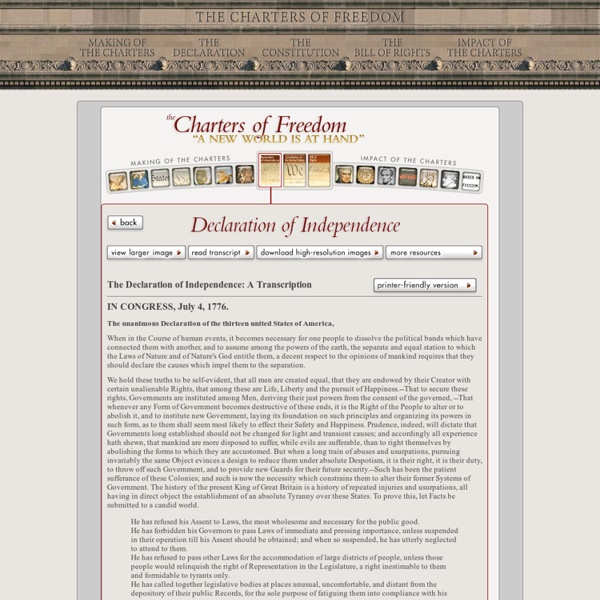Legal history
Legal history or the history of law is the study of how law has evolved and why it changed. Legal history is closely connected to the development of civilizations and is set in the wider context of social history. Among certain jurists and historians of legal process it has been seen as the recording of the evolution of laws and the technical explanation of how these laws have evolved with the view of better understanding the origins of various legal concepts, some consider it a branch of intellectual history. Twentieth century historians have viewed legal history in a more contextualized manner more in line with the thinking of social historians. They have looked at legal institutions as complex systems of rules, players and symbols and have seen these elements interact with society to change, adapt, resist or promote certain aspects of civil society.
Abraham Lincoln's Crossroads
About the Exhibit: Abraham Lincoln’s Crossroads is an educational game based on the traveling exhibition Lincoln: The Constitution & the Civil War, which debuted at the National Constitution Center in June 2005. The online game is intended for advanced middle- and high-school students. It invites them to learn about Lincoln’s leadership by exploring the political choices he made.
After years of debate, ICC Member States agree on definition of
14 June 2010 – Member States of the International Criminal Court (ICC) have agreed on what constitutes the crime of aggression, a long-running source of contention in international law, after nearly one decade of discussion. Nations agreed to amend the Rome Statute, which set up the Court, to define the crime of aggression as “the planning, preparation, initiation or execution, by a person in a position effectively to exercise control over or to direct the political or military action of a State, of an act of aggression which, by its character, gravity and scale, constitutes a manifest violation of the Charter of the United Nations.” Under the resolution adopted at the end of the two-week-long ICC review conference in Kampala, Uganda, on Friday, blockades of ports or coasts of a State by armed forces of another State, as well as an invasion or attack by troops of one State on the territory of another, are considered as acts of aggression under the statute.
Every BBC freedom of information request made - and what happened to it. As a spreadsheet
Freedom of information requests to the BBC include questions about its iPlayer. Photograph: Jonathan Hordle / Rex Features The BBC has received 3,701 Freedom of Information requests covering information "held for purposes other than those of journalism, art or literature" since the Act was introduced in 2005, a(nother) FoI request shows, published via What Do They Know?. Due to the broadcaster's unique position as a publicly-funded body, the BBC is only obliged to facilitate requests not directly related to its creative output. In the seven months of 2010 alone, the BBC received 529 FoI requests to which it is obliged to provide the information. In 2009, there was around 887; 2008 saw 772 requests, 519 in 2007, 423 in 2006 and 561 in 2005.
Obama signs US legislation to stymie Britain's libel law
President Obama yesterday signed into US law legislation aimed at protecting American authors, journalists and academics from Britain's libel laws. The Securing the Protection of our Enduring and Established Constitutional Heritage Act, known as the SPEECH Act, makes libel judgments against US writers in foreign territories unenforceable if they are perceived to counter the First Amendment right to free speech. The British-based Libel Reform Campaign has expressed concern that Britain's reputation is being damaged internationally due to what it calls "our restrictive, archaic and costly libel laws, which cost 140 times the European equivalent." The SPEECH Act is inspired by the Libel Terrorism Protection Act passed by the New York State assembly in February 2008, after American academic Dr Rachel Ehrenfeld was sued in London by an Arab businessman Sheikh Khalid bin Mahfouz. Only 23 copies of her book Funding Evil were sold in Britain compared to thousands distributed in the US.
EU-breed patentsysteem in strijd met wet
Nieuws - Het Europese Hof van Justitie neigt naar afwijzing van een centraal patentsysteem voor de EU omdat dit juridisch niet strookt met de EU-verdragen. Uit een uitgelekt document blijkt dat de advocaat-generaal van het Europese Hof van Justitie in Luxemburg de plannen om te komen tot een centraal Europees patentsysteem wil afschieten, schrijft de IDG-nieuwsdienst. Europese bedrijven zijn al jaren voorstander van een EU-brede aanpak van patenten omdat dit de innovatie zou stimuleren. Het huidige systeem van patentregistraties in elk land is duur en onpraktisch, zeker voor kleine bedrijven.
United States Bill of Rights
The Bill of Rights is the collective name for the first ten amendments to the United States Constitution. Proposed to assuage the fears of Anti-Federalists who had opposed Constitutional ratification, these amendments guarantee a number of personal freedoms, limit the government's power in judicial and other proceedings, and reserve some powers to the states and the public. While originally the amendments applied only to the federal government, most of their provisions have since been extended to the states by way of the Fourteenth Amendment, a process known as incorporation. The amendments were introduced by James Madison to the 1st United States Congress as a series of legislative articles.
IEET (IEET)



